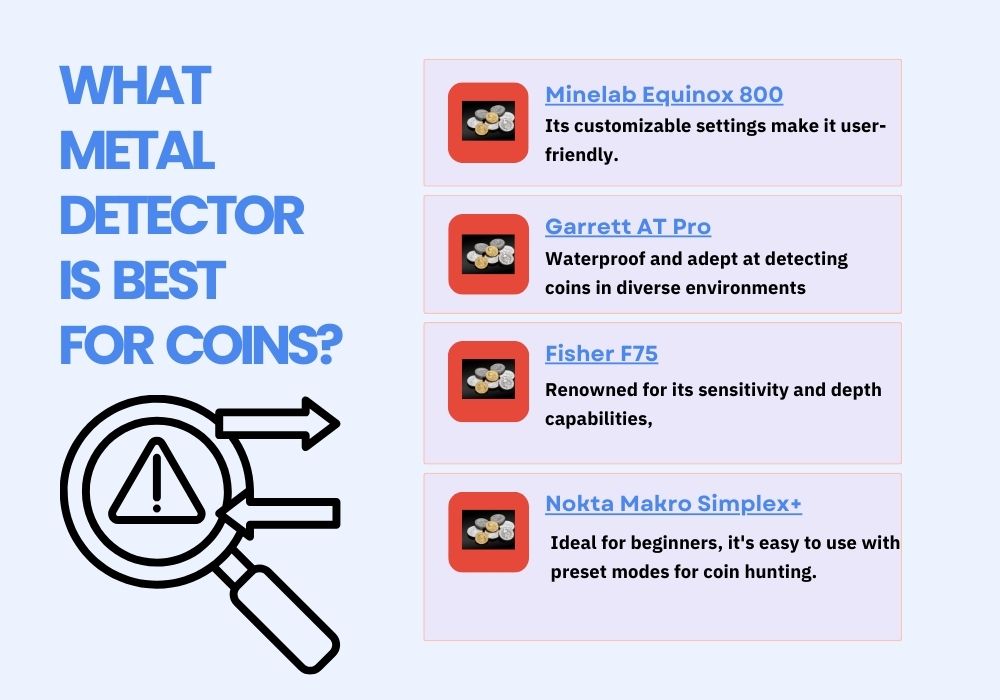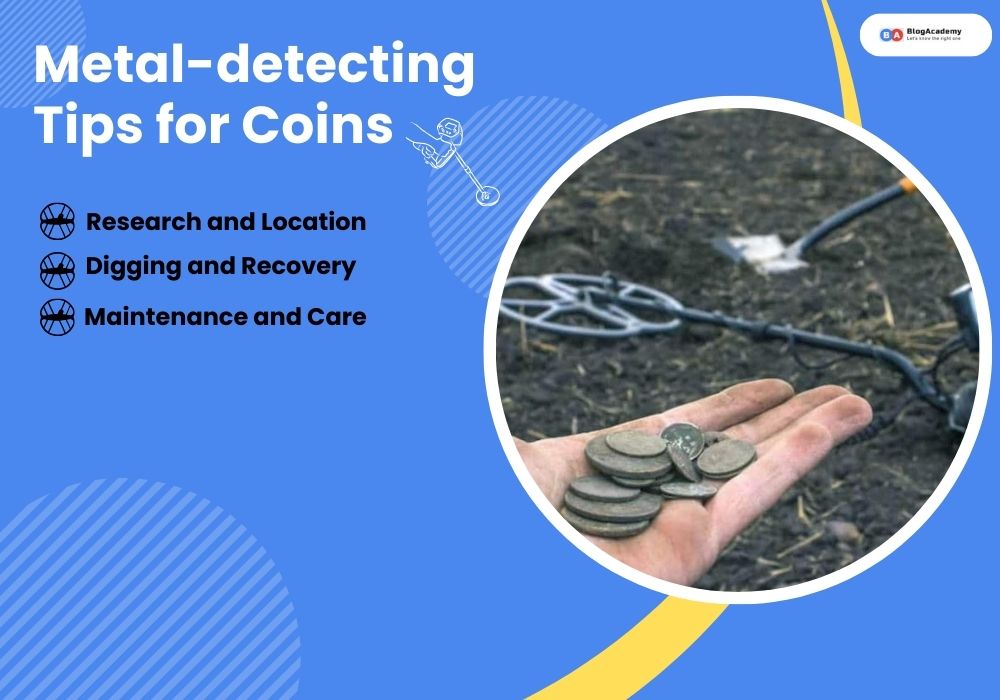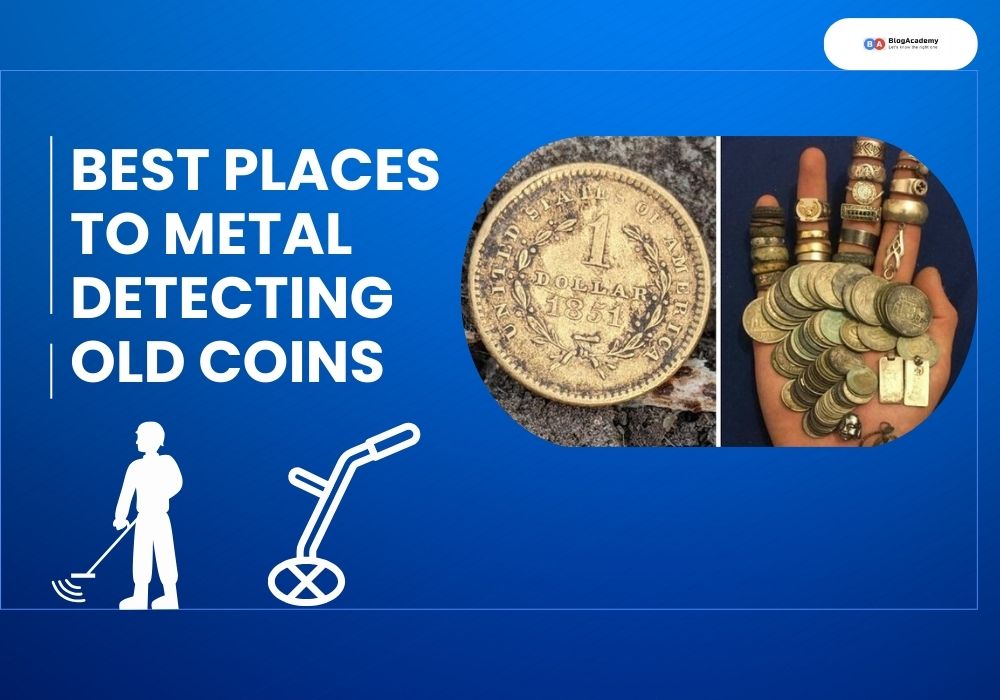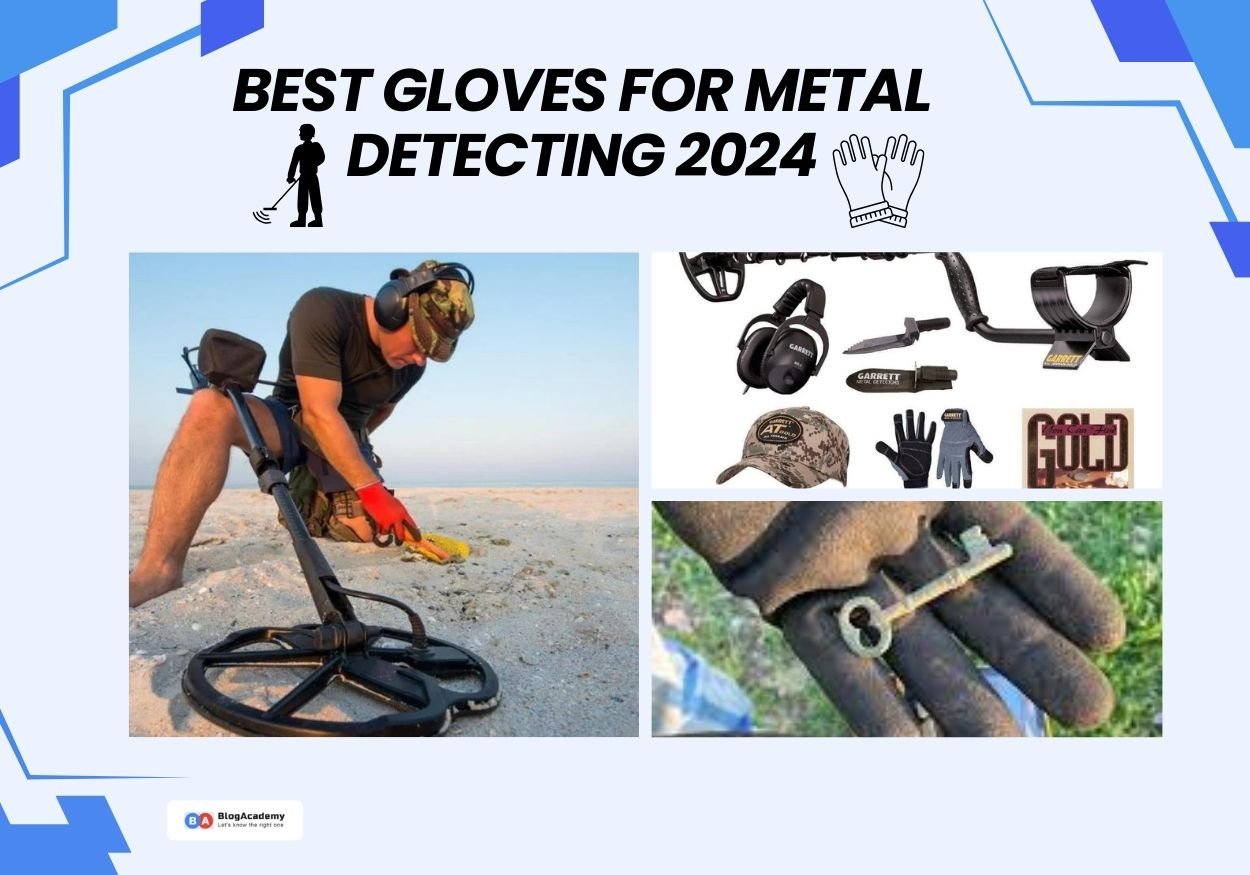Explore expert metal-detecting tips for coins and enhance your treasure-hunting skills with valuable insights. Discover the secrets to successful coin hunting and maximize your finds with these essential tips and techniques.
Metal detecting for coins can be a thrilling and rewarding hobby, offering enthusiasts a chance to unearth pieces of history while enjoying the thrill of the hunt. Whether you’re a novice or a seasoned detectorist, mastering the art of finding coins requires a combination of technique, patience, and a bit of luck. In this comprehensive guide, we’ll delve into valuable tips and strategies to help you maximize your coin-finding adventures with a metal detector.
Metal-detecting tips for Coins step-by-step guide
Choosing the Right Metal Detector
Selecting the appropriate metal detector for coin hunting is crucial. Look for models specifically designed for coin detection, offering features such as:
- Discrimination Settings: These help distinguish between various metals, allowing you to focus on coins while filtering out unwanted targets like nails or aluminum foil.
- Target Identification: Machines with this feature display the type of metal detected, enabling you to prioritize signals likely to be coins.
- Depth Indicator: This feature helps estimate the depth at which a target is buried, aiding in more efficient digging.
- Adjustable Sensitivity: This allows you to fine-tune the detector’s sensitivity to different coin sizes and depths.
Research and Location of important metal-detecting tips for coins
Understanding where to search significantly enhances your chances of finding coins. Consider these pointers:
- Historical Sites: Scout locations with historical significance such as old settlements, parks, beaches, or areas where people have congregated for a long time.
- Local Knowledge: Speak to locals or historians; they might offer insights into places where coins were traditionally used or lost.
- Online Resources: Use online maps or forums to identify potential hotspots and gather information about popular coin-hunting areas.
Techniques for Successful Coin Hunting
Perfecting your technique can make a significant difference in your success rate:
- Swinging Technique: Keep your detector’s coil close to the ground, moving it in a slow and steady side-to-side motion to cover more ground effectively.
- Overlap Sweeping: Overlapping your sweeps ensures you cover every inch of the search area, minimizing the chance of missing potential targets.
- Target Recovery: Use a pinpointer to precisely locate the target’s position after your detector signals. This helps avoid unnecessary digging and minimizes disruption to the area.
Digging and Recovery of common metal-detecting tips for coins
Once you’ve located a potential target, the way you recover it matters:
- Digging Tools: Invest in quality digging tools like a trowel, shovel, or handheld digger to unearth targets without causing damage.
- Mindful Digging: Dig small, neat plugs and carefully extract the target to avoid disturbing the surroundings. Remember to fill the hole afterward.
- Patience and Persistence: Not every signal will yield a coin, but patience and persistence are key. Explore various areas and be thorough in your searches.
Maintenance and Care
Proper maintenance of your equipment ensures optimal performance:
- Cleaning Coins: If you uncover coins, clean them gently with mild soap and water to remove dirt. Avoid harsh cleaning methods that could damage their value.
- Equipment Care: Regularly clean and inspect your metal detector. Store it in a dry, safe place to prevent damage.
Best Places For Finding Coins
Coin enthusiasts can discover treasures in various spots. Start by checking couch cushions, pockets, and forgotten jars at home. Don’t overlook vending machines’ return slots or parking meters.
- Metal Detecting Hotspots: Parks, beaches, and historical sites are prime locations. Parks host events and see frequent foot traffic, increasing the chances of finding dropped coins. Beaches attract tourists and can yield lost items as the tide shifts.
- Old Homesteads and Farms: Abandoned properties or farmlands often hold hidden treasures. People might have dropped coins or left behind valuable items that can be found with permission.
- Coin Shows and Conventions: Coin enthusiasts gather here, offering networking opportunities to buy, sell, or exchange rare coins. You might discover unique pieces or learn valuable tips from seasoned collectors.
- Online Platforms: Auction websites, forums, and social media groups dedicated to coin collecting provide a virtual treasure trove. Here, you can buy, sell, or trade coins with a global community of collectors.
- Numismatic Shops and Antique Stores: These locations offer a curated selection of coins for purchase and may also buy or trade coins, expanding your collection while supporting local businesses.
What metal detector is best for coins?

These detectors offer various features suited for coin hunting, catering to different skill levels and environments. Consider your preferences and expertise before choosing the best fit for your coin-detecting adventures.
- Minelab Equinox 800: Known for its versatility, this detector offers various frequencies to detect coins in different terrains. Its customizable settings make it user-friendly.
- Garrett AT Pro: Waterproof and adept at detecting coins in diverse environments, its high-resolution iron discrimination helps identify valuable coins amid trash.
- Fisher F75: Renowned for its sensitivity and depth capabilities, it excels in locating coins buried deeper underground. Its lightweight design enhances user comfort during long searches.
- Nokta Makro Simplex+: Ideal for beginners, it’s easy to use with preset modes for coin hunting. Its waterproof feature expands search areas to include beaches and wet environments.
- Teknetics T2 Classic: Recognized for its high performance in finding coins, its ergonomic design, and precise target identification system aid in efficient coin detection.
FAQ On metal-detecting tips for coins
Can a metal detector detect coins?
Yes, metal detectors can find coins because they’re made of metal. These detectors send signals that bounce back when they hit metal objects, helping to locate coins underground or hidden in sand. The detector makes a sound or shows a signal on a screen when it finds metal, like coins.
Where are most coins found metal detecting?
Coins are often found in parks, old playgrounds, beaches, and historical sites while metal detecting. These places attract people who might have dropped coins. Look near benches, paths, and areas where people congregate. Always check local laws and get permission before detecting in public places.
What number is coins on a metal detector?
Coins typically register as mid-range numbers on a metal detector. Depending on their size and composition, they might sound off as numbers between 20 and 40 on the detector’s display. Larger coins may give higher readings, while smaller ones could fall towards the lower end of that range.
How deep can a metal detector find coins?
Metal detectors can spot coins buried up to 12-18 inches underground, depending on factors like soil type, coin size, and detector quality. Advanced detectors may reach deeper depths. The detector sends signals that bounce off metal, alerting users to potential treasures below the surface.
Conclusions
Metal-detecting for coins is not just a hobby; it’s a journey through time, unraveling stories hidden beneath the earth’s surface. Armed with the right knowledge, equipment, and techniques, you can enhance your chances of uncovering rare and valuable coins while enjoying the thrill of the hunt. Remember, each beep of your detector holds the potential to reveal a piece of history, making this hobby both exciting and rewarding. So, grab your detector, explore new locations, and embark on an adventure that might just lead you to a treasure trove of coins waiting to be discovered.



